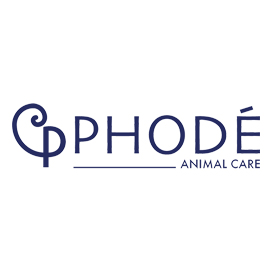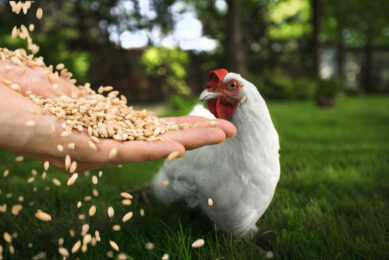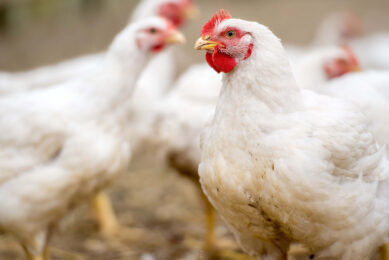Piglet feed: managing the zinc oxide ban
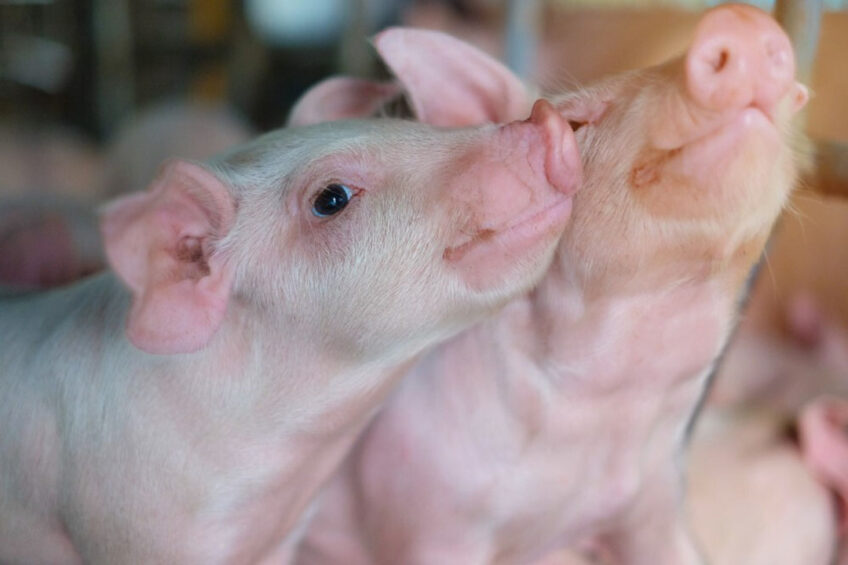
On 26 June 2017, the European Commission adopted a decision to withdraw commercial authorisation for veterinary medicinal products containing zinc oxide. Member States had 5 years to transition to alternatives. In June 2022, only a nutritional threshold of 150 mg zinc/tonne of finished feed will be authorised for piglet diets.
Why 2,500 ppm of zinc oxide at weaning?
Zinc oxide-based medicated premixes are used during the 14 days after weaning when piglets suffer from digestive disorders, face feeding changes, and stress related to groupings of animals in batches. The systematic and preventive use of high doses of zinc oxide (2,500 ppm) prevents post-weaning digestive disorders.
Why ban a treatment that is known to be effective?
A toxic risk to the environment has been identified in relation to the application of piglets’ manure from the post-weaning period. Bacterial resistance to zinc and the selection of antibiotic-resistant bacteria has also been noted.
Alternatives for digestive disorders in piglets
To ensure good digestive health of the piglets, multiple factors must be taken into account:
- At farm level, good farm practices (cleanliness of feeder, water quality, etc.), strict biosecurity (walking forward strategy, barn cleaning, and disinfection, etc.) are a must-have.
- Good management of weaning stress is also an important factor to take into account.
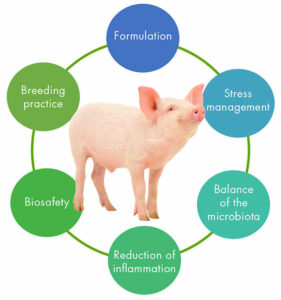
Indeed, weaning combines several stressors:
- Separation from the mother
- The mixing of piglets (regrouping)
- A change of the environment and a change of feed
These cumulative elements contribute to making the piglet prone to bacterial growth leading to digestive disorders.
The formulation of pre-starter feeds given after weaning plays a major role in the digestive health of piglets. The selection of ingredients takes into account parameters such as the absence of anti-nutritional factors, the use of highly digestible proteins, and feed palatability.
Various additives are available to maintain the balance of the microbiota. These include organic acids, yeast walls, and essential oils.
Neurosensory molecules for early feed intake
Early feed consumption by piglets under maternal care is an important factor for the correct development of the intestinal villi and thus for the proper functioning of the intestine.
The piglet should learn to consume solid feed as early as possible. Of course, the farmer can offer a solid feed from the first days of the piglet’s life, but this is not sufficient to guarantee its consumption. Moreover, the creep feed composition is not necessarily similar to the one of the post-weaning feed, which can lead to neophobia. The use of certain olfactory molecules can facilitate voluntary feed intake by animals.
Phodé, a specialist in welfare through smell, has developed a neurosensory solution that attracts the animals to feed and stimulates the appetite in the pituitary by activating the hypothalamic-pituitary-adrenal (HPA) axis.
An increase in daily intake was observed with this solution created for the piglets around weaning. This results in improved growth performance.
Figure 2 – Phodé piglet solution for early learning of solid feed consumption
Neurosensory molecules to reduce the perception of weaning stress
Stress induces a cascade of physiological reactions through the secretion of cortisol. Consequently, this hormone has negative effects on the immune status of the animal with the secretion of the interleukin IL-1 and the cytokine TNF-α. This reduces the body’s ability to resist potential pathogenic micro-organisms, such as E. coli K88.
The control of risk factors through good management is essential and can be accompanied by specific neurosensory molecules incorporated into the feed. The animal’s response to stress is then modified: its adaptive capacity is reinforced through an identified brain action.
Supporting the activity of serotonin neurons during periods of stress ensures that performance is maintained. Each individual responds to a stressor or combination of stressors in a specific way. The preventive action of the brain increases the resistance of the piglets.
Neurosensory molecules to maintain the balance of the microbiota
Certain aromatic molecules – essential oils and spices – are identified and recognised for their effect on the balance of the microbiota. They are complementary to good farm practices (e.g., biosecurity, stress management during weaning).
Their association and potential consider 3 main actions, namely the modulation of intestinal flora, the management of the digestive function, and the management of oxidative stress. Like zinc oxide, their use is preventive in proportions that vary according to feed formulation and farm management. The strict quality control of the mixture guarantees a standardised formula with specific benefits.
A holistic approach: the key to success
Successful weaning of piglets depends on achieving a delicate balance between multiple factors. A holistic animal-centred approach through different neurosensory solutions is complementary to the actions of the farmer and the formulator to accompany the weaning of piglet feed.


